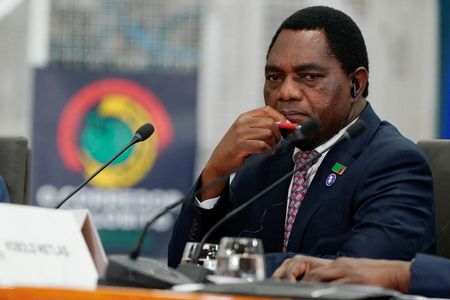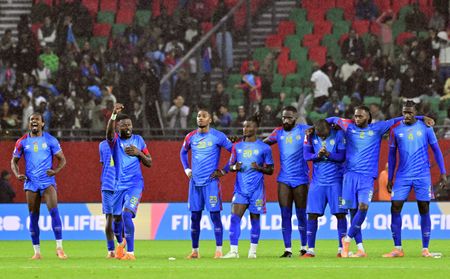By Tarek Amara
TUNIS (Reuters) – Tunisia’s electoral commission said on Saturday it had preliminarily accepted only three presidential candidates, including incumbent Kais Saied, amid widespread criticism of what the opposition says are moves to exclude serious contenders.
The commission said it had accepted the candidacies of Saied and Zouhair Magzhaoui, who is seen as close to Saied, and Ayachi Zammel for the Oct.
6 election, while rejecting 14 others.
Zammel is the head of the Azimoun party, and has not previously been regarded as a influential politician.
Prominent politicians, including Mondher Znaidi, Imed Daimi, Abdel Latif Mekki, Karim Gharbi, Safi Said, Kamel Akrout and Nizar Chaari, said the interior ministry refused to provide them with the criminal record details required by the commission as a new condition to run.
They accused the authorities of seeking to return Tunisia to the years of dictatorship and sham elections that were the norm before a revolution in 2011.
The head of the commission, Farouk Bou Asker, told reporters that the candidates were rejected due to a lack of citizens’ endorsements and not because they did not have a criminal record card.
Tunisian opposition parties and human rights groups have accused the authorities of using “arbitrary restrictions” and intimidation in order to ensure the re-election of Saied.
A Tunisian court this month sentenced four potential presidential election candidates to eight months in prison and banned them from running for office on a charge of vote buying.
One potential candidate, Safi Said, said on Friday that he had withdrawn from the race because he refused to participate in what he called a “one man show”.
Kais Saied, who dissolved parliament and seized control of all powers in 2021 in a move described by the opposition as a coup, had said last year that ”he would not hand over the country to non-patriots.”
(Reporting by Tarek Amara; Editing by Alex Richardson)







